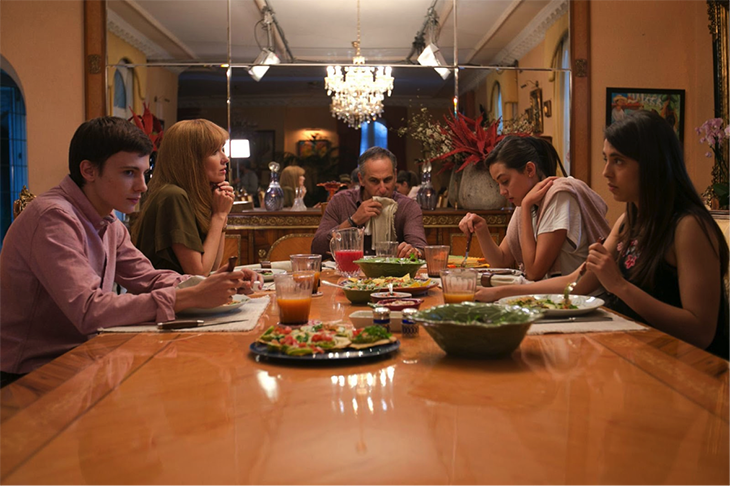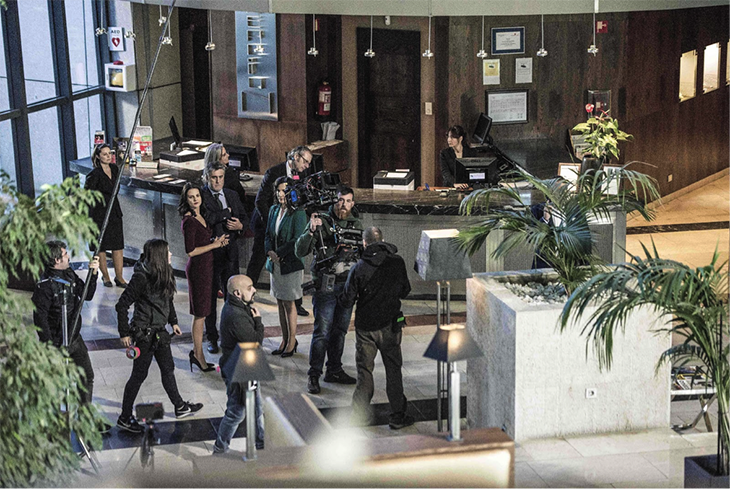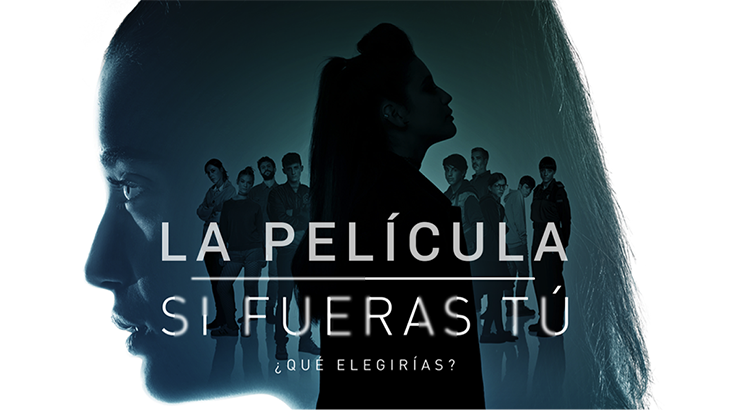After taking a hiatus from Latin America for economic reasons, Spain’s state-owned public service broadcaster Televisión Española (TVE) plans to return to the region.
Part of Corporación Radiotelevisión Española (RTVE), the company is diving into movies and fiction, working on acquiring rights to films, and producing and co-producing linear series that work both locally and internationally.
“We are looking for potential content and financial partners to generate fictional stories that are international and approachable, with the intention of producing content that travels better [across regions],” says Fernando López Puig, head of cinema and fiction for TVE.
In light of SVOD platforms established by large American broadcasters, López Puig sees a shift in consumption habits, which means a change in the network’s approach to productions.
“The product has to closely relate to the way it is consumed, and this influences content. We are following these trends fast enough to be able to adapt and enter this type of market,” says López Puig.
RELATED: RTVE, finalista en los premios PromaxBDA Europe con la campaña ‘Vivimos nuestro tiempo’

Content for Spanish Viewers
In this new stage, TVE is interested in creating stories in Spanish that hail from Spain but center around Latin American topics. The challenge is finding stories that work well in both regions, while also meeting the public service channel’s mission of providing social, cultural and educational content for viewers in Spain.
“It is difficult to find this type of content,” says López Puig. “You try to make a current series and, oddly enough, you always end up with very topical subjects, such as the European colonization of the Americas, the Latin American Wars of Independence or drug trafficking, which seem to be our only links. In addition, the most popular series in Spain are usually very local and therefore unlikely to resonate on a larger scale.”
That’s why the network has turned to literary adaptations and historical fiction.
“The novel has a trajectory, based on the popularity of its literary success, and historical events connect our past to all Latin American countries,” says López Puig.
TVE is also putting an emphasis on the thriller and crime genres, which are more widely accepted by global audiences.
TVE’s History in Latin America
RTVE’s experience when it comes to movies in Latin America is marked by the company’s investment in the 2014 award-winning Spanish-Argentine co-production Relatos Salvajes (Wild Tales)—starring Ricardo Darín and produced in participation with Canal+ and Pedro and Agustín Almodóvar’s production company, El Deseo.
The network had also pursued a Latin American collaboration for the production of a series of made-for-TV films, which was then put aside for financial reasons.
Now, TVE has begun restoring partnerships in Latin America’s movie market, and in October 2017 launched Una mujer fantástica (A Fantastic Woman)—produced by Chilean company Fábula Producciones, and nominated for an Oscar as Best Foreign Language Film of the Year.
Despite TVE’s break from new productions, some series have remained popular in Latin America, namely El Ministerio del Tiempo (The Ministry of Time) which is available on Netflix, and has also been a hit in Mexico on Canal 22.
Isabel, based on Spain’s historical queen Isabella I of Castile (Isabella the Catholic), has been successful as well.
Some series also have been adapted specifically for the region, such as Cuéntame cómo pasó (Tell Me How It Happened), a show in its 18th season on TVE about the experiences of a middle-class family during the final years of Spain’s Franco regime, and the arrival of democracy in the country.
State-owned channel Televisión Pública Argentina developed a new version of the series, and the original weekly program was turned into a daily show. The network worked hard to adapt the historical context of Spain in the 1970s to Argentina’s own political and social events.
Planning for the Future
As it moves forward, TVE has high expectations for its recently debuted crime drama series Estoy vivo (I Am Alive), which is distributed in Latin America through Amazon Prime Video.
The network also is hopeful about thriller Fugitiva, which is currently in production. Although not a Latin American co-production, it features locations in Spain and Mexico, and has popular actors from both regions such as Spanish actress Paz Vega and Mexican actor Julio Bracho.
“I believe Fugitiva will span the region since it’s an example of the type of content we are creating that extends to Latin American audiences and, above all, an international market,” says López Puig.



TVE is also assessing a co-production that will be filmed in Peru and Chile, as well as another one in Cuba, with a cast and crew from Spain, or both Spain and Latin America with the option of a shared percentage.
“We are restarting this relationship [with Latin America] because we think that, in part, it is the future,” says López Puig. “From the series and from [the content] which we want to co-produce, we will progress further [into the region].”
Exploring Experiential Storytelling
Over the last two years, TVE also has been exploring new technology and experiential storytelling methods. One of its first activations was Ministerio VR: Salva el Tiempo, a virtual reality experience for the series El Ministerio del Tiempo that incorporated techniques from video games and escape rooms.
Currently, it’s experimenting with Playz (http://www.rtve.es/playz/webseries/), a new platform for dynamic web series. For example, in Si fueras tú, an adaptation of New Zealand’s format for Reservoir Hills, users decided at the end of each episode what would happen next in the story.
All of the resulting material was then compacted into a TV movie that aired on the network’s linear broadcast.
“It was a success, with around two million visits,” says López Puig. “This shows great support for TVE’s digital channel that is not usually viewed by young people, so through this we’re also trying to revitalize and rejuvenate that audience.”

Overall, TVE is focused on continuing to improve its international channels, enhancing partnerships, and creating an SVOD platform.
López Puig is positive about the collaboration with Latin America and the services the region offers, and also considers Spain to be an ideal location for productions limited budgets.
“Our budgets are more affordable than the media budgets of a European series, and we also have great technicians and creators who are capable of generating 70-minute stories every week. With the combination of these finances and a good story, great fictional content can be achieved.”
Version español: Televisión Española regresa a Latinoamérica
Tags:













































__twocolumncontent.jpg)











